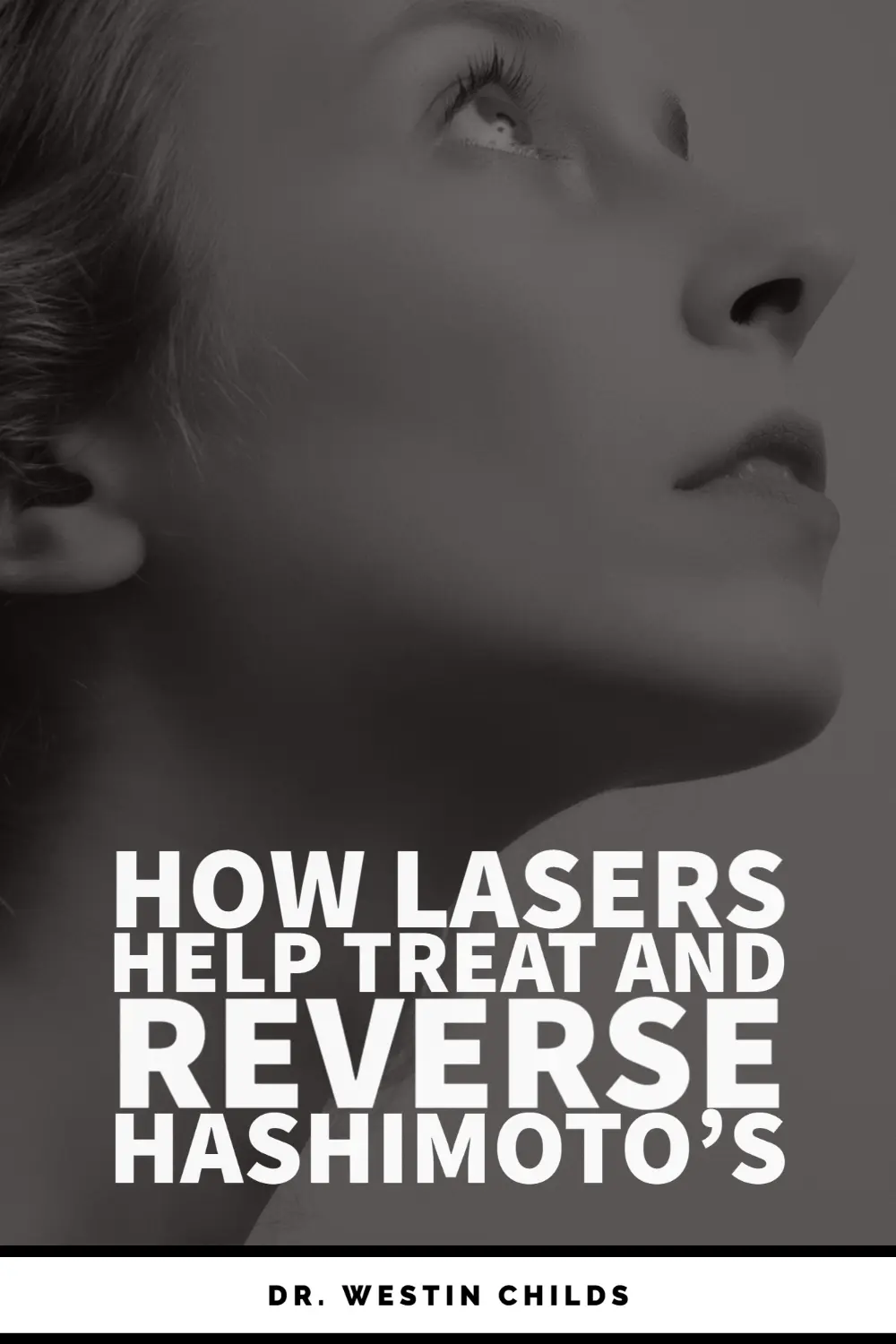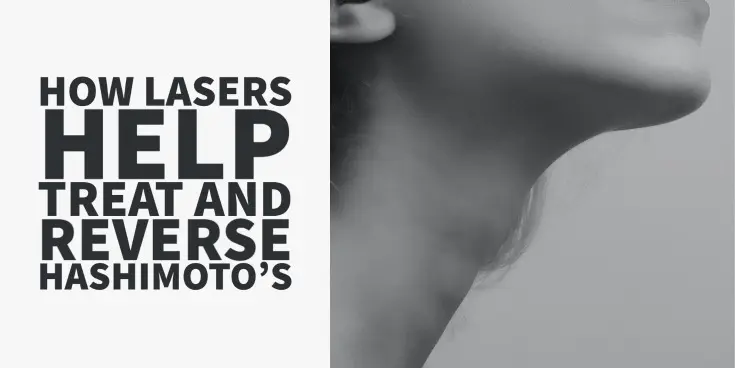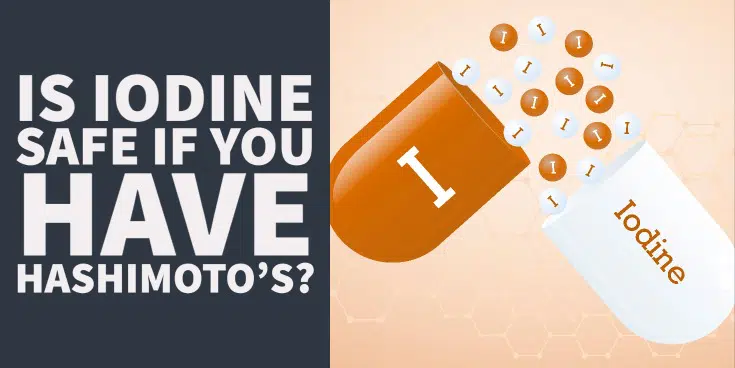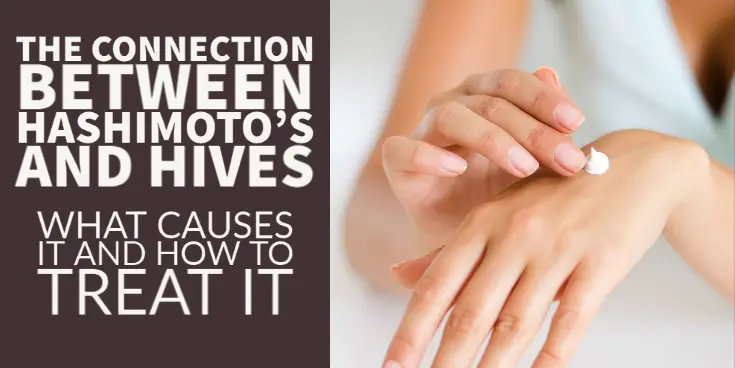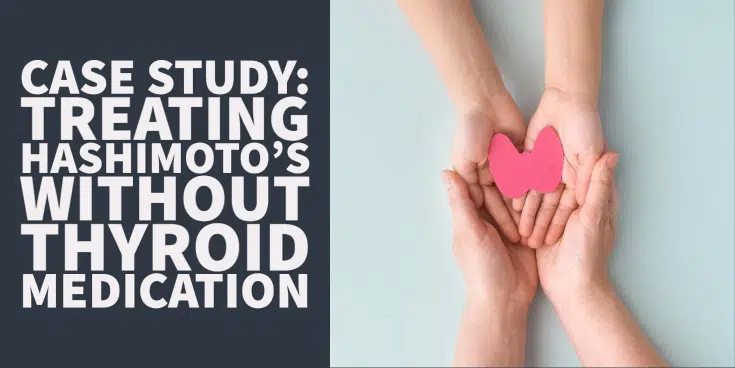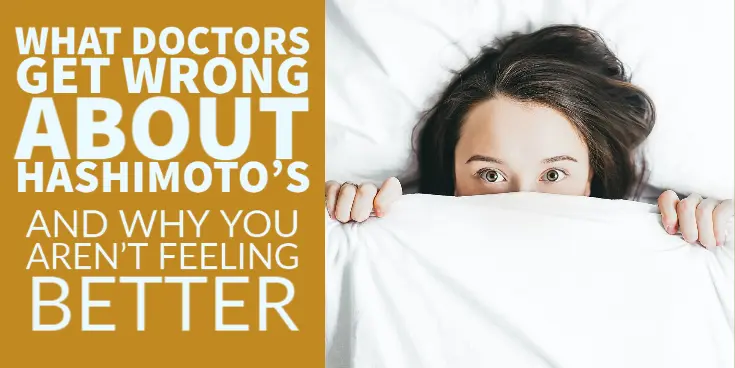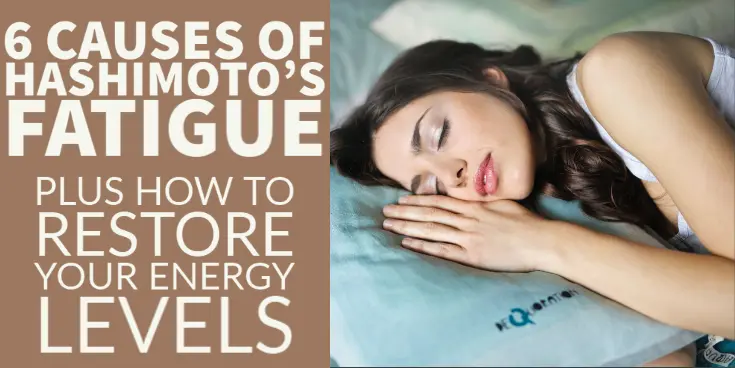Wouldn’t it be nice if there was a therapy that you could use that required very little effort on your part and had a profound effect on your thyroid gland?
I’ve always told you to be critical of such claims because they are almost always not true.
But laser therapy may be the closest thing that we can get to such a therapy which means that it’s definitely something that you should be aware of.
Can laser therapy completely heal or reverse your Hashimoto’s without you putting any effort in on your end?
Probably not, but it IS something that you can add to your existing therapies including things like changing up your diet, exercising daily, using supplements, and so on.
The problem with laser therapy is not that it doesn’t work but that it can be hard to find someone who specializes in this type of therapy.
But make no mistake:
Using laser therapy can potentially help heal Hashimoto’s thyroiditis (1).
Today you are going to learn…
- More about thyroid gland tissue regeneration and whether or not you can regenerate thyroid gland tissue (2)
- What types of lasers can be used to treat Hashimoto’s thyroiditis
- Why the thyroid gland is anatomically in the right place for this type of therapy
- How laser therapy helps people who have Hashimoto’s
- And what type of doctor you should see if you want to use this type of therapy
Let’s jump in…
DOWNLOAD FREE RESOURCES
Foods to Avoid if you Have Thyroid Problems:
I’ve found that these 10 foods cause the most problems for thyroid patients. Learn which foods you should avoid if you have thyroid disease of any type.
The Complete List of Thyroid Lab tests:
The list includes optimal ranges, normal ranges, and the complete list of tests you need to diagnose and manage thyroid disease correctly!
Can Thyroid Gland Tissue Regenerate?
The first thing we need to discuss is whether or not thyroid gland tissue can regenerate.
I frequently get asked this question in some form or another, almost on a daily basis:
“I’ve had my thyroid removed or [insert other therapies including radioactive iodine ablation], can I get off of my thyroid medication?”
Really what these people are asking is whether or not they can regenerate thyroid gland tissue so they aren’t reliant upon thyroid medication for the rest of their lives.
Most people know that thyroid hormone is required for life.
Put another way, you simply can’t survive if you don’t have thyroid hormone surging through your body.
So if you’ve ever had your thyroid gland tissue cut out or permanently damaged (either because of radioactive iodine or because of end-stage Hashimoto’s) then you MUST take thyroid hormone for the rest of your life.
There is no getting around this, even with laser therapy.
Currently, there is no way for thyroid gland tissue that is completely destroyed to grow back.
So if you’ve had your thyroid completely cut out, or if you’ve undergone radioactive iodine ablation therapy, or if you are in end-stage Hashimoto’s then lasers won’t be effective for you.
But it’s not all bad news.
Even though it’s not possible to regenerate DEAD thyroid gland tissue, it’s still possible to heal DAMAGED thyroid gland tissue.
Thyroid gland cells that are only damaged, but not destroyed, can still be salvaged and healed.
Hashimoto’s thyroiditis is what is referred to as a progressive disease.
The progression of the disease results in more damage over time.
So the longer that you have the disease, the more dead thyroid cells there will be.
But before a cell actually dies, it first gets damaged.
And these damaged cells are the ones that laser therapy can potentially help.
I should also point out that while thyroid gland cells cannot grow back they can undergo something called hypertrophy.
Hypertrophy just means that something gets bigger.
Imagine that you have had half of your thyroid gland removed.
Half of the gland is completely gone and will never come back but the other half can undergo hypertrophy and grow larger.
The remaining size can grow and may be able to do some of the work of the missing half due to this growth.
But you will never be able to grow back those dead thyroid cells that have been removed.
We can take advantage of hypertrophy in Hashimoto’s to essentially do the same thing.
If 20-30% of your thyroid gland has been destroyed due to Hashimoto’s thyroiditis, you may be able to get the remaining 70-80% to hypertrophy and grow to essentially do the job of the cells that are dead.
But in order to have this happen, you need to STOP the destruction and inflammation of Hashimoto’s.
And that’s where laser therapy steps in.
What is Low-Level Laser Therapy?
When we talk about laser therapy to treat Hashimoto’s we are talking about a very specific type of laser.
Lasers of all types are used quite frequently in medicine and health for all sorts of disease states.
For instance, lasers are often used in the field of cosmetic dermatology (fractional CO2 lasers) to help tighten the skin.
Hot lasers are also used in medicine to cut through tissue, remove certain types of tissues (even cancer cells), or assist in surgery.
The type of lasers that work for Hashimoto’s are NOT considered hot lasers.
In fact, it’s quite the opposite.
If you want to use lasers for Hashimoto’s then you want to look for something called low-level laser (light) therapy or LLLT for short.

These are cold lasers (meaning if they touch your skin they don’t feel hot) and they are ideal for stimulating cellular tissue, reducing inflammation (3), and pain relief (4).
Even though these low-level lasers do not produce heat, they still provide energy to target cells.
And they are frequently used in medicine as well.
When I had my physical practice I would frequently use low-level lasers to treat conditions such as peripheral neuropathy to help with nerve cell regeneration (5), and I’ve even used it to kill certain types of toe fungus (6).
If cold lasers are so effective, why is this the first time I’ve heard about them?
Even though cold lasers can be very effective it’s not always possible to use them.
Why?
Because they only work if they can penetrate deep enough into the body to affect the right tissue.
They work on the thyroid gland because the thyroid gland is so superficial and close to the skin.
The thyroid gland sits in your neck and cold lasers only have to penetrate through a thin layer of skin and fat to get right to the thyroid gland.
And because these lasers don’t penetrate deep into the body, they really don’t work to treat your internal organs.
Even though they can be quite effective in treating Hashimoto’s, it’s still unlikely that your doctor will even be aware of their use in Hashimoto’s.
Why?
As I’ve mentioned in previous articles and blog posts, doctors really don’t consider Hashimoto’s a treatable disease/condition.
They consider HYPOTHYROIDISM (low thyroid) a treatable condition, so they really only care about Hashimoto’s insofar as it CAUSES low thyroid.
In their minds, Hashimoto’s is “treated” by putting you on thyroid medication.
Laser therapy like we are talking about here focuses on treating thyroid gland inflammation and the autoimmune component of Hashimoto’s, so it’s not really on the radar of your endocrinologist or regular doctor.
Benefits of Laser Therapy in Hashimoto’s
How does LLLT (laser therapy) help people who have Hashimoto’s thyroiditis?
We have several studies that have evaluated this very question.
These studies have taken people who have Hashimoto’s thyroiditis and put them on a weekly laser therapy protocol (usually 2 to 3 times per week) over a period of time.
They then looked at various markers to see if there was any improvement.
These studies show that laser therapy does indeed result in improvement in several markers for those who have Hashimoto’s.
I’ve included several of the potential benefits that LLLT can provide to those who have Hashimoto’s:
- Laser therapy may increase thyroid function – Researchers noted that the thyroid gland produces more thyroid hormone after exposure to LLLT. This means that more T3 and T4 thyroid hormones are produced by the thyroid gland after treatment sessions.
- Laser therapy may decrease your need for thyroid medication – Patients who used LLLT did not need as much thyroid medication AFTER laser therapy. This is most likely related to improvement in the thyroid gland. If the thyroid gland can produce more thyroid hormone then you will be less reliant upon other sources of thyroid hormone such as thyroid medication.
- Laser therapy may help reduce thyroid antibody levels (7) – Some patients who used laser therapy saw a decrease in thyroid antibody levels. These antibodies, including thyroglobulin antibody and thyroid peroxidase antibody, cause inflammation and damage to the thyroid gland.
- Laser therapy may help improve blood flow to the thyroid gland (8) – Some patients also experienced an increase in blood flow to the thyroid gland. Blood flow allows for more nutrients that can be delivered to the thyroid gland to support thyroid hormone production and to potentially help reduce inflammation.
- Laser therapy may increase thyroid gland volume – Some patients also experienced an INCREASE in thyroid gland volume as measured by ultrasound after laser therapy use. The enlargement noted here is a good thing and should not be confused with a goiter. Over time, Hashimoto’s may cause thyroid gland atrophy or shrinkage. An increase in thyroid gland volume may be an indicator of reduced inflammation and thyroid tissue recovery.
“The RCT showed evidence that LLLT promoted the following: (a) an improvement in thyroid function, as indicated by the reduction in the dose of LT4 used to treat hypothyroidism; (b) a reduction in serum anti-TPO concentrations; and (c) improvement in the echogenicity, volume, and thyroid vascularization pattern in CDU [6, 7]. Such results suggest that LLLT may be an interesting alternative for the treatment of CAT-induced hypothyroidism. However, the long-term effects and safety of this approach are unknown.”
– Safety and Efficacy of Low-Level Laser Therapy in Autoimmune Thyroiditis: Long-Term Follow-Up Study (9)
It isn’t exactly clear how these lasers are working to treat Hashimoto’s but it appears that they have an effect on inflammation as well as autoimmunity.
The result is decreased damage to the thyroid gland and improved thyroid function.
How to Find a Doctor Who Uses Low Level Laser Therapy
Because LLLT is not FDA-approved to treat the thyroid gland, it may be difficult to find a standard doctor who utilizes this treatment.
But just because it is not FDA-approved does not mean that it won’t work.
Remember:
FDA approval typically requires a lot of money and time from research studies that reach a certain standard that the FDA sets.
Once they reach this measure, the FDA will then put their official stamp of approval on it.
Oftentimes, though, it doesn’t make sense for manufacturers of products to pay that kind of money to get the approval.
So instead, these therapies end up being used “off-label”.
Because of this, and the other reasons that I mentioned previously, it’s not likely that you will hear about laser therapy from your endocrinologist or family practice doctor.
In my experience, doctors who tend to be the most educated on laser therapy are chiropractors.
Chiropractors often use cold lasers to help reduce inflammation in joints and tendons and to treat chronic pain syndromes, so many of them have these lasers already in their offices.
The protocols used to treat the thyroid gland are different from those used to treat joints and muscles, though.
In addition, you need to make sure that you are using a cold laser that operates at the right frequency and one that will actually penetrate your tissues into your thyroid gland.
For this, you will want to see someone who has at least used cold lasers to treat thyroid patients previously.
Many companies that produce and manufacture these lasers have a list of doctors and providers who have purchased them.
You can look at these lists and locators to see if someone is near you.
If you use the wrong type of laser, or if you don’t use it too much, you may not see the desired results.
Most of the research studies that I mentioned previously used the cold lasers 2-3 times per week over a 10 week period.
It is also possible to purchase cold lasers over the counter for personal use.
They are surprisingly affordable with a price range anywhere from $500 to $1,000.
If you can’t find someone nearby who specializes in laser therapy then you may be able to personally purchase one and use it that way.
Wrapping it up
LLLT or “laser therapy” is something that all patients with Hashimoto’s thyroiditis should be aware of.
It can easily and safely be added to therapies such as thyroid medication, diet changes, exercise routines, supplement protocols, stress reduction, and so on.
When used with the other therapies listed above it may help to reverse Hashimoto’s, prevent further damage from occurring, and may even help regenerate damaged thyroid gland cells.
If you want to use LLLT make sure you find a licensed practitioner who is knowledgeable about both lasers and Hashimoto’s.
Using the right type of laser for the right duration and at the right frequency, are all important if you want results.
My recommendation is to look for local chiropractors to see if they have a cold laser in their office.
If all else fails, you may also want to look at purchasing a laser for personal use as well.
Now I want to hear from you:
Did you know that lasers could potentially be used to treat Hashimoto’s?
Have you tried using lasers before to treat your thyroid?
If so, what was your experience? Did you find that it helped?
Leave your questions, comments, or experience below!
Scientific References
#1. https://www.hindawi.com/journals/ije/2018/8387530/
#2. https://www.cell.com/cell-stem-cell/fulltext/S1934-5909(15)00411-7?_returnURL=https%3A%2F%2Flinkinghub.elsevier.com%2Fretrieve%2Fpii%2FS1934590915004117%3Fshowall%3Dtrue
#3. https://journals.lww.com/ajpmr/Abstract/2014/12000/Effects_of_Low_Level_Laser_Therapy_on_Skeletal.7.aspx
#4. https://pubmed.ncbi.nlm.nih.gov/28987080/
#5. https://pubmed.ncbi.nlm.nih.gov/29071033/
#6. https://clinicaltrials.gov/ct2/show/NCT01534689
#7. https://www.researchgate.net/publication/227710315_Low-level_laser_in_the_treatment_of_patients_with_hypothyroidism_induced_by_chronic_autoimmune_thyroiditis_A_randomized_placebo-controlled_clinical_trial
#8. https://www.hindawi.com/journals/isrn/2012/126720/
#9. https://www.hindawi.com/journals/ije/2018/8387530/
